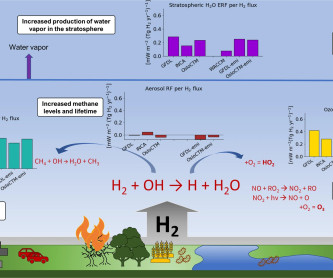International study of role of soots impact on Arctic climate
Green Car Congress
APRIL 21, 2011
Scientists from the US, Norway, Russia, Germany, Italy and China are participating in a study examining the potential role of black carbon, or soot, on the rapidly changing Arctic climate. The Arctic climate is changing faster than some scientists expected. The study will run through 15 May out of Svalbard, Norway.











Let's personalize your content